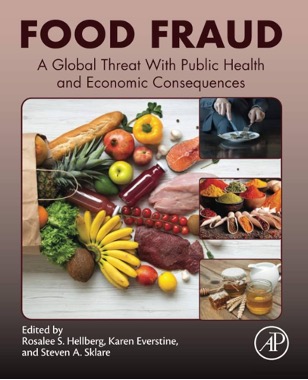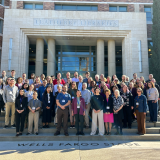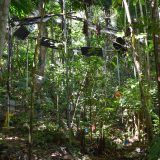January Research Highlights Pilot-wave theory, DNA barcoding, and Schmid research at SICB and SABER
January 23, 2024
Scientists and engineers from Schmid College of Science and Technology and the Fowler School of Engineering were on the move once again in January, presenting research at the annual meeting of the Society of Integrative and Comparative Biology (SICB) and the Society for the Advancement of Biology Education Research (SABER West).
At SABER West, seven members of Jeremy Hsu’s research group presented on topics ranging from STEM students’ experiences with racism to student motivation to study in introductory biology courses.
At the same time, members of the research groups led by Lindsay Waldrop, Patricia Lopes and Cassandra Donatelli presented at SICB. Among the highlights were presentations by postdoctoral scholar Nicholas Hebdon and alumnus Daniel Mejia ’22, who are studying scent detection in domestic dogs in collaboration with Waldrop with funding from the Office of Naval Research.

Hellberg edited a book on food fraud in 2020.
Second, a new study from Chapman University food science students advances DNA barcoding methodology for identifying what plant species are contained within a given supplement. While herbal supplements are regulated in the United States by the Food and Drug Administration (FDA), prior approval is not needed before going to market and there have been many reports of adulteration and mislabeling of the contents of herbal supplements. This study was led by Calin Harris in collaboration with Diane Kim, Chevon Jordan, Miranda Miranda and Associate Professor of Food Science Rosalee Hellberg. Harris and co-authors tested 54 herbal supplements marketed for the prevention or treatment of COVID-19, with a focus on plants such as Ashwagandha, Cinnamon, Ginger, Guduchi, Turmeric and Vacha. For every single species they tested, the study found at least one product with undeclared plant species.
Finally, research from Grand Challenges Initiative postdoctoral fellow Indrajit Sen provides new ways of thinking about quantum gravity. Published this month in the journal Scientific Reports, Sen explores how pilot-wave theory, an offbeat formulation of quantum mechanics, can be used to extract well-defined probabilities from non-normalizable states, thus addressing a long-standing problem in quantum gravity. Sen’s work has several spin-off implications besides quantum gravity. It implies, for example, that energy is not a fundamentally discrete physical quantity, challenging our current understanding of quantum theory. Accordingly, it is possible that tiny perturbations in the early universe gave rise to this discreteness, which can be observed today such as in atomic energy levels. And although highly futuristic, hypothetical computing algorithms utilizing the full structure of pilot-wave theory could leapfrog the fastest quantum computers in future.


